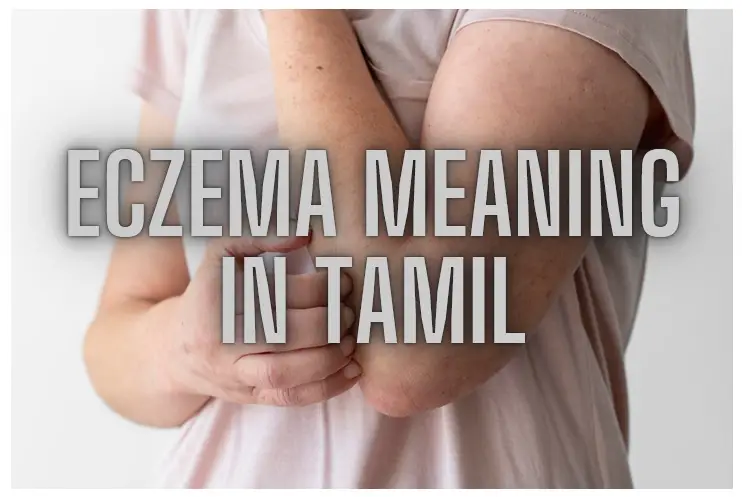In Tamil, the term “eczema” is commonly referred to as “சொதர் வியாதி” (Sotar viyāti) or “சொதர் நோய்” (Sotar noy), which literally translates to “skin disease” or “skin ailment.” Eczema is a broad term used to describe various inflammatory skin conditions characterized by dry, itchy, and red patches on the skin.
Eczema, also known as dermatitis, is a common skin condition that affects people of all ages. It is characterized by inflamed, itchy, and irritated skin. The exact cause of eczema is not yet fully understood, but it is believed to involve a combination of genetic and environmental factors.
Tamil Eczema Treatment
In Tamil, there are various traditional remedies and treatment approaches that are commonly used to manage eczema symptoms. It’s important to note that these remedies may not have scientific evidence to support their effectiveness, and it’s always advisable to consult a healthcare professional for a proper diagnosis and guidance on treatment. Here are a few traditional Tamil remedies that are sometimes used:
Neem (வேம்பு): Neem leaves or neem oil are believed to have anti-inflammatory and antimicrobial properties. Applying neem oil or making a paste with neem leaves and applying it to the affected areas may help soothe eczema symptoms. However, it’s essential to perform a patch test before using neem oil, as some individuals may be allergic to it.
Turmeric (மஞ்சள்): Turmeric is known for its anti-inflammatory properties. Mixing turmeric powder with a small amount of water or coconut oil to form a paste and applying it to the affected areas may help reduce inflammation and itching.
Coconut oil (தேங்காய் எண்ணெய்): Coconut oil is widely used in Tamil households for various skin and hair care purposes. It is believed to have moisturizing and soothing effects on the skin. Applying virgin coconut oil to the affected areas can help alleviate dryness and itching associated with eczema.
Aloe vera (சோற்றுக்கட்டை பழம்பூ): Aloe vera gel is known for its soothing and moisturizing properties. Applying fresh aloe vera gel to the eczema-affected skin may help provide relief from itching and inflammation.
Herbal baths: Taking a bath with water infused with certain herbs, such as neem, turmeric, or tulsi (holy basil), is believed to have a calming effect on the skin. Boiling the herbs in water and adding the strained water to bathwater can be tried.
While these traditional remedies may offer some relief for mild eczema symptoms, it’s important to remember that eczema is a complex condition, and severe or persistent cases may require medical intervention. Consulting a dermatologist or healthcare professional is recommended for a proper diagnosis and personalized treatment plan for eczema.

